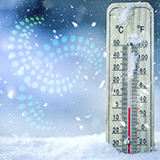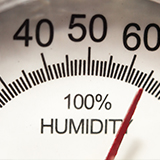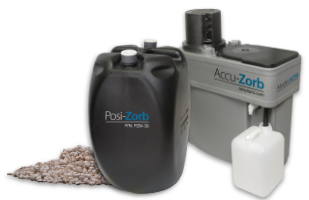Condensate Corner
June 2024

Maintaining Proper Balance: Preventing Airlock
One of the most common problems seen with Zero-Loss Condensate Drain installations is the improper installation of the balance line or lack of balance line from the drain back to the vessel containing condensate. Air-Locking occurs when air cannot escape the drain to make room for condensate to take it’s place. When this happens, even though a drain may be installed, all of the condensate will remain in the vessel, and the drain won’t fill up with water
To ensure this doesn’t happen, a balance line (also known as a vent line) needs to be installed. Drains installed in a direct drop right underneath a filter or tank can get away without having a balance line, however most other installs will require a balance line of some sort. This is a port located usually at the highest point in a condensate drain and must be installed back into vessel being drained or the piping leading to the drain at some point above the waterline. This will allow air to flow from the drain back into the vessel and allow condensate to flow into the drain. The balance line should slope up towards the vessel or piping it is being installed into, and contain no dips or bellies where condensate can settle and cause air to not pass.
All Zero-Loss Drains offered by Air System Products come standard with a port to run a balance line, from our tried and true Robo-Drain to even our smallest Electronic No Loss Drain the Accu-Drain 2. This allows the drain to be installed in many different methods in addition to a straight drop under a filter or tank. That is something that the competition does not offer in an Electronic Zero-Loss Drain of that size.
January 2024

Unveiling the Magic: How Proper Condensate Management Prolongs the Life of Compressed Air Systems
Condensate drains are the little-know heroes in compressed air systems, where efficiency and dependability are crucial. Proper condensate control, often overlooked, may greatly extend the life of your compressed air system. Let us reveal the magic of condensate management and how it transforms system lifetime and efficiency.
The Hidden Culprit – Condensate and its Destructive Potential
Although condensate, a byproduct of compressed air, seems harmless, it can cause serious problems for your system. Overwetness can cause corrosion, reduced efficiency in machinery, and worse air quality. The first line of defense is understanding your opponent.
The Role of Condensate Drains – Unsung Heroes of Efficiency
Condensate drains are the hidden stars of this story. These small, modest devices are very important for keeping moisture from building up because they remove condensate from the system quickly and automatically. Modern zero-loss drains work very efficiently, keeping all of the energy. This is different from older drains that might waste useful compressed air during the cleaning process.
Efficiency, Reliability, and Beyond
Avoiding problems caused by moisture is only the beginning of proper condensate management. An effective and dependable compressed air system cannot be built without it. These drains help keep pressure levels steady, prevent corrosion, and keep critical components running smoothly by draining excess condensate.
Prolonging Equipment Life – A Game-Changing Impact
The magic lies in the ripple effect of proper condensate management on the overall lifespan of your compressed air system. Condensate drains protect your equipment from corrosion and water damage, which shortens its lifespan and increases the likelihood that you will have to replace it sooner rather than later.
Energy Savings and Environmental Impact
Your compressed air system, your energy consumption, and the planet may all benefit from well-managed condensate. You may lessen your impact on the environment and save money on electricity by lowering the amount of compressed air lost during the condensation removal procedure.
Within the intricate network of compressed air systems, effective condensate management arises as a powerful catalyst for change. The magic manifests itself via the prolongation of equipment lifespan, improved efficiency, and a more environmentally friendly operation. As we honor the often overlooked condensate drains, let their remarkable abilities serve as a beacon for creating a durable compressed air system.
Click here to browse our complete line of drains and OWS systems.
December 2023

Various impacts of cold weather on compressed air systems.
1. Condensation: Cold temperatures can increase the condensation within the system. As the air cools, its ability to hold moisture decreases, leading to more water condensing within the air lines and various components. This excess moisture can affect the performance and reliability of the system.
2. Freezing: Water in the compressed air lines can freeze in cold weather, leading to blockages, pressure drops, or even damage to the equipment. Ice formation within the system can disrupt airflow, causing issues with air tools or machinery that rely on compressed air.
3. Air Density Changes: Cold air is denser than warm air. This change in air density can affect the pressure and flow rates within the system. Compressors may need to work harder to maintain adequate pressure levels, impacting energy consumption and overall efficiency.
4. Component Stress: The cold can cause stress on various components of the compressed air system, potentially leading to cracks or other forms of damage. This is especially true if there’s moisture trapped within the system that expands when frozen.
5. Material Contraction: Different materials used in the system, such as pipes and seals, may contract in colder temperatures. This contraction can lead to leaks or compromised connections within the system.
To mitigate the effects of component stress and material contraction, insulation of air lines and system components can help maintain stable temperatures. More importantly, implementing proper drainage systems to remove excess condensate to reduce moisture content in the air can minimize the impact of cold weather on compressed air systems. Regular maintenance and monitoring during colder months are also essential to identify and address any issues promptly.
June 2023

Relative Humidity, Dew Point & How it Affects Your Compressed Air System
The temperature at which water transforms from a vapor to a liquid at a specific pressure is known as the DEW POINT. The dew point decreases as the air becomes drier.
The amount of water vapor in the air compared to the maximum amount it can contain is determined by the RELATIVE HUMIDITY. Temperature and pressure both affect relative humidity. At greater pressures compared to lower pressures and warmer temperatures, air may contain more water vapor.
The dew point is an essential aspect of the purity of compressed air. It indicates the amount of moisture in the air. If the dew point is too high, meaning there is too much moisture in the compressed air system, it can cause issues with the system, the instruments and equipment that use the air, as well as the quality of the product or process. If your air must conform to ISO purity standards, a dew point that is too high may also place you out of compliance. To protect your system, prevent problems with air-using instruments, and maintain product quality, ensure that your pressure dew point falls within the application-specific parameters.
Excessive condensation in compressed air systems can result in a variety of issues for the compressed air system. Some examples include:
Corrosion and/or Rust:
Moisture causes metallic items, such as compressor parts, pipe systems used for distribution, and tools and equipment that require compressed air, to corrode.
Freezing:
When temperatures drop, extra moisture that builds up in control lines, valves, and hoses is susceptible to freezing. As a result of water expanding when it freezes, equipment may become harmed.
Control issues:
Instruments for air compressors may get obstructed or give erroneous readings as a result of water and corrosion in control lines.
Lubrication Issues:
Rust and water in the compressor or air tools will reduce lubrication effectiveness and cause moving components to be damaged.
Compliance Issues: If your compressed air purity must fulfill ISO 8573 criteria, too much moisture in the air will put you out of compliance.
One of the efficient and cost effective ways to help combat moisture in your compressed air system is by the use of an Air System Products condensate drain. Whether you need a simple electronic timer drain, or an on-demand zero-drain, ASP has you covered. Click here to view our complete line of condensate drains to help you maximize your system performance today.
June 2022- FOR IMMEDIATE RELEASE

Efficient Components = Efficient Systems = Government Rebates!
Manufacturers and consumers alike are becoming increasingly concerned about energy efficiency. When investing in new capital more and more businesses are looking towards energy efficient equipment because of two main reasons. First, energy-efficient equipment can reduce utility costs, ultimately saving business’s money. Next, energy-efficient systems add less strain our natural resources, thus saving them for future use and reducing climate change.
Not only are companies making these energy saving decisions, but the federal and state government are encouraging this practice as well. How? Well DSIRE is a highly useful research tool that enables location-specific searches for state-level energy-efficient incentives. You can get a comprehensive list of all the programs that are accessible to you by simply entering your zip code or selecting a state. When you find an incentive you like, click on it for more information about how to take advantage of the benefit in question. With these incentive programs our Electric and Pnuematic Zero Loss Drains are even more of a perfect fit to helo save your company money and energy!
May 2022

Essential Periodic Media Replacement
It is important that media is changed out routinely. Left unchecked, saturated media will permit untreated condensate downstream and may cause the unit to overflow. Although upsets occur more naturally with a gravity fed systems, even with a pump module, the pump can allow oil to bypass the media which could cause the system to exceed the local regulatory limits. Collaborating with condensate management experts at ASP can help ensure the right Oil Water Separator with the proper media maintenance plan is being used in any application.
For some products, such as ASP’s Posi-Zorb product line, the media module is self-contained which controls the possibility of spills or contamination during media replacement. These are just two of the features that many operational facilities prefer as they are low maintenance and cleaner as the condensate is well-contained. It is important to understand that regular maintenance is crucial to keep the system running at its top performance. If the media becomes saturated, there is a risk of by-passing or overflow of untreated condensate which is not only bad for your system but bad for the environment. To avoid this, a periodic replacement of the media is imperative.
Changing your media is surprisingly simple. Whether you’re utilizing our Accu-Sep, Accu-Zorb, or Posi-Zorb OWS system, the process to change out the media is just a few short and simple steps. Click the links below to find a photo-guided step by step guide for your system.
Accu-Zorb Media Replacement • Posi-Zorb Module Replacement
April 2022

Safer, Healthier & More Productive…
…and CLEANER! Air System Products, along with the entire Filtration Group organization is committed to making the world a Safer, Healthier, & More Productive, but we are taking it up a notch and doing our part to make it Cleaner & Greener as well. Along with our new initiative to lessen the impact of paper waste by providing a scan-able QR Code instead of shipping a printed Installation and Operation Manual on our Robo-Drain line of condensate drains, ASP’s zero-loss drains and oil/water separator systems help reduce facility energy cost and keeps oil from leaching into the groundwater.
Compressed air is one of the most costly utilities in any manufacturing facility, and with our complete line of pneumatic and electronic zero-loss drains, ASP can help you save energy from escaping with every cycle of the drain. Our Zero-Loss Robo-Drain alone will save our combined customer base an estimated $900,000 in energy consumption costs in 2022.
The Environmental Protection Agency (EPA) classifies spent oil as a pollutant and imposes limits on the amount of oil that can be expelled by air compressors. This is defined as 15 parts per million (15/ppm), although any level that generates a sheen on the surface of water qualifies. This is true of the runoff that many compressors dump into their drainage systems. ASP oil/water separators are made up of proprietary particles that attract oil and adhere it to a filtering bed, lowering the amount of oil in the runoff to acceptable limits. In fact, in 2022 alone, our Posi-Zorb Oil/Water Separator System, water with our proprietary adsorption media will prevent an estimated 701 gallons of oil from seeping into the ground.
As you can see, Safer, Healthier & More Productive isn’t just what we say, it’s what we do.
